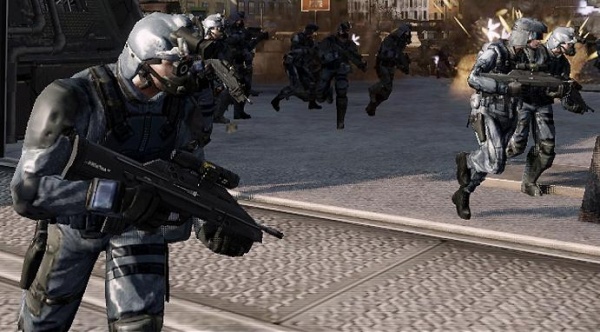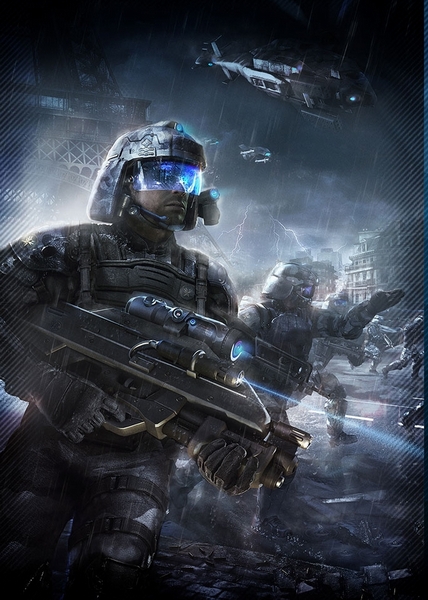The human race is often violent, lashing out at each other for multiple things, whether it be greed or anger we fight each other, and we have done it on a massive scale. In the year 2025 WW3 broke out, countries lashed out as borders were redrawn and millions died of bombs and other deadly weapons. Devastation on levels unheard of was caused, whole countries seeing there infrastructure collapse. Anarchy spread across those countries unable to keep on to there holdings. WW3 ended 2039, and the year is now 2040. Out of the ashes of the old countries, rises many new ones, seeking to spread there power and influence across the Globe
Welcome to The New Order, a Post-WW3 NRP
This is set in 2040, a year after the end of WW3. However what happened during that war is up to the players and what happened prior to it is up to the players. While this may cause issues I will carefully watch and make sure these don't arise, and it makes the RP a lot more fun when the players create the history.
This is a attempted revival of another RP that died due to reasons. Lets make it bigger and better.
Rules
1.Typical RP rules. No God-modding, No Power-playing, No Meta-gaming etc...
2.Realism. Yes this is futuristic, but you still have to comply with the laws of physics
3.I have the final say on everything. Also if there is a feud over something in the RP I will monitor, otherwise keep it out my thread mkay?
4.No one-liners, 3-5 sentences minimum per a post. Exception is diplomatic posts since those tend to be a lot shorter.
5. If I see you just constantly declaring war on everyone I am going to ban. Yes there is nations that declare a lot of war, but they do other things then just conquer everything
App Format and some guidelines for writing your app
1. I will not be enforcing what I call political realism. So if you really wanted you could have a socialist US.
2.This is the future, there is more advanced technology, so if you want to experiment with some more advanced stuff go ahead.
3.No nations that are space-based.Period
4.No armies capable of conquering the world in 5 minutes. You can have a strong one though
5.2014 and up can be modified and decided by you. 2013 and prior cannot be touched however.
6. No claiming more then one nation if your neutral during WW3.
App Format
Name of Nation:(Obvious)
Territories:(What you control)
Government Type:(How is your government run? Is it a dictatorship or a democracy, or some other weird form we have nether heard of?)
Military:(How does it operate? What are its strongest divisions? Does it make use of advanced weapons or some old ass AK-47s?)
Economy:(What is your main industries and how your country makes most of its cash.)
Foreign Policy:(How does your nation usually handle diplomacy with others?)
History:(Obvious)
Foes:(Who does your nation hate?)
Demographics:(Population and of what race)
Other:(Anything else interesting about your nation?)
Group App
Since people have been applying as groups rather then whole nations I decided to throw in a app for it
Name of Group:(Obvious)
Type:(Is it some type of company or a terrorist cell?)
Assets:(What its controls, you can include land in this but don't make it to big, your not a country after all.)
Personnel:(Amount of people employed or in the group)
History:(Obvious)
MAP
Map Courtesy of Aaron

Welcome to The New Order, a Post-WW3 NRP
This is set in 2040, a year after the end of WW3. However what happened during that war is up to the players and what happened prior to it is up to the players. While this may cause issues I will carefully watch and make sure these don't arise, and it makes the RP a lot more fun when the players create the history.
This is a attempted revival of another RP that died due to reasons. Lets make it bigger and better.
Rules
1.Typical RP rules. No God-modding, No Power-playing, No Meta-gaming etc...
2.Realism. Yes this is futuristic, but you still have to comply with the laws of physics
3.I have the final say on everything. Also if there is a feud over something in the RP I will monitor, otherwise keep it out my thread mkay?
4.No one-liners, 3-5 sentences minimum per a post. Exception is diplomatic posts since those tend to be a lot shorter.
5. If I see you just constantly declaring war on everyone I am going to ban. Yes there is nations that declare a lot of war, but they do other things then just conquer everything
App Format and some guidelines for writing your app
1. I will not be enforcing what I call political realism. So if you really wanted you could have a socialist US.
2.This is the future, there is more advanced technology, so if you want to experiment with some more advanced stuff go ahead.
3.No nations that are space-based.Period
4.No armies capable of conquering the world in 5 minutes. You can have a strong one though
5.2014 and up can be modified and decided by you. 2013 and prior cannot be touched however.
6. No claiming more then one nation if your neutral during WW3.
App Format
Name of Nation:(Obvious)
Territories:(What you control)
Government Type:(How is your government run? Is it a dictatorship or a democracy, or some other weird form we have nether heard of?)
Military:(How does it operate? What are its strongest divisions? Does it make use of advanced weapons or some old ass AK-47s?)
Economy:(What is your main industries and how your country makes most of its cash.)
Foreign Policy:(How does your nation usually handle diplomacy with others?)
History:(Obvious)
Foes:(Who does your nation hate?)
Demographics:(Population and of what race)
Other:(Anything else interesting about your nation?)
Group App
Since people have been applying as groups rather then whole nations I decided to throw in a app for it
Name of Group:(Obvious)
Type:(Is it some type of company or a terrorist cell?)
Assets:(What its controls, you can include land in this but don't make it to big, your not a country after all.)
Personnel:(Amount of people employed or in the group)
History:(Obvious)
MAP
Map Courtesy of Aaron



